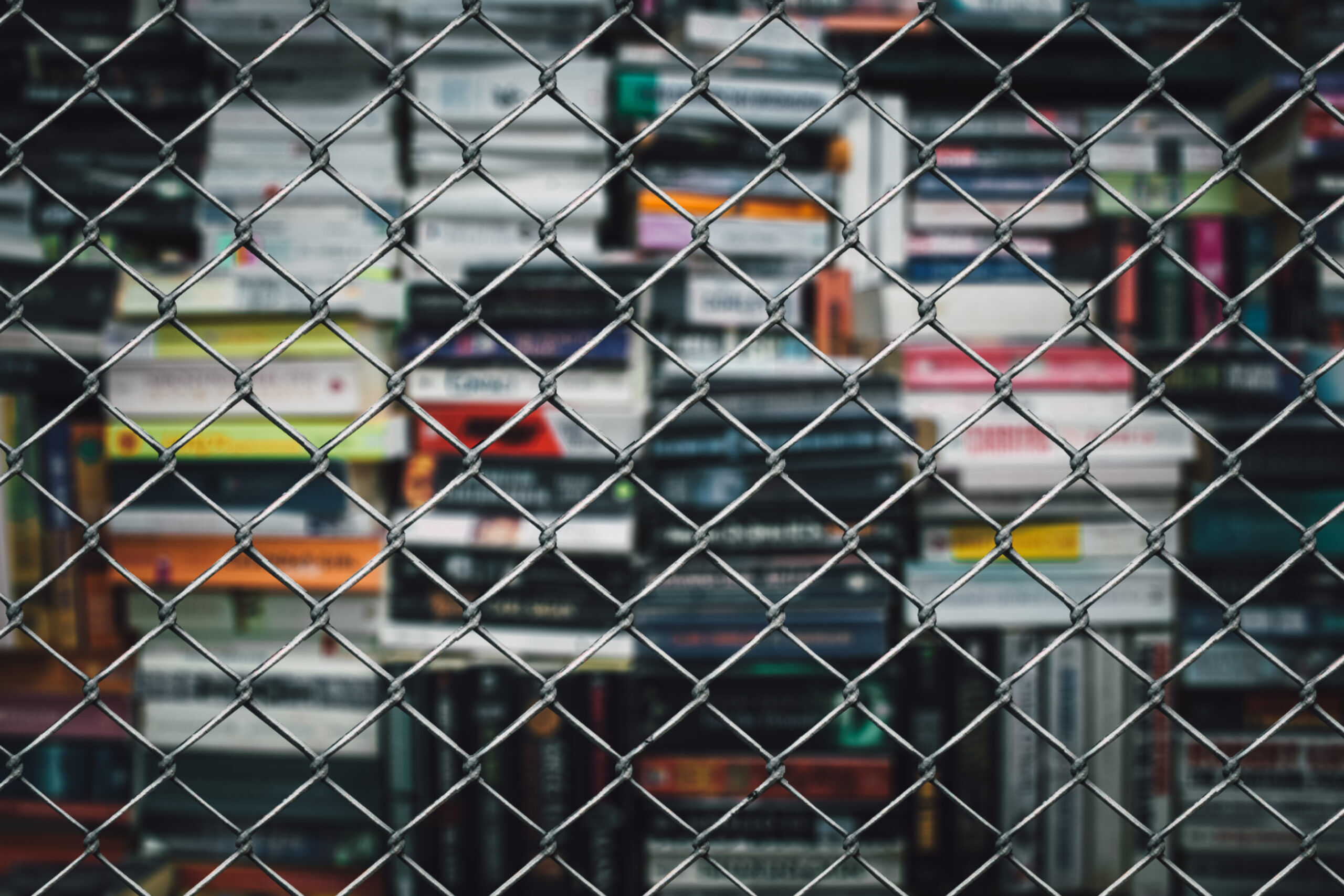Recently I was denied some anti-fascist and antiracist reading material by the New York Department of Corrections. My jpay email is routinely, and arbitrarily, delayed or denied; multiple pieces of snail mail have been held by the facility for weeks, and pictures have been rejected.
Most of these denied pictures were from family members who are still too young to understand that the universal peace sign is regarded by NYSDOCCS as gang-affiliated when it is made by Black and Brown fingers.
During my long stay, I have taken note of how censorship has increasingly shown up in different areas of my own life. As I write this, I am currently housed in Eastern NY Correctional Facility, which is located in the Hudson Valley area of New York State.
Related“With 850,000 juvenile arrests a year, we must have the foresight to see how chucking our queer youth in human kennels serves little societal benefit.”
Join the frontline of change
Be informed, be inspired, and be part of the conversation that’s shaping a queerer world with our twice-a-week newsletter.
There has always been an insatiable desire by hegemonic institutions—from the racial construction of whiteness, enslavement, and Jim Crow on to the prison industrial complex—to exert control over Black and Brown people’s self-determination and identity. Censorship, in all its manifestations, seeks to suppress, and make deletions or changes in who has access to a certain part of a culture and access to their secreted authorized “knowing” of that culture.
Racist censorship can be read ad nauseum; the historical receipts are voluminous. Yet the more pervasive, subtle, and dangerous demonstrations of censorship are often carried out, un- or intentionally, by some Black and Brown men who often censor other Black and Brown LGBTQ+ folks, and in doing so act as an agent of white supremacy.
Ideas of who belongs within a culture—and who does not—operate through the insistent white gaze.
For some Black and Brown straight men who ascribe to a white-patriarchal consciousness, it’s commonplace to abort other non-straight Black and Brown people out of the race and leave them to fend for themselves in what they deem as the more appropriate LGBTQIA+ community, for gay people: unbeknownst to them: it is a racist, mostly white-queer-male-focused community.
I’m Black (Native/West-Indian), a New Yorker, an Incarcerated Citizen, educated, and queer-gendered. In many conversations I have had while incarcerated, with mostly other educated men of color, I am rebuked because somehow my issues as a Black/Brown person are “different” from theirs… because my Blackness intersects with the “LGBTQ+ community.” Really?
At that point, I usually put back on my black-satin-intellectual-boxing gloves and prepare myself to fight my way back, once again, into my own culture.
LGBTQ+ issues for Black and Brown people are not the same as they are for white queer people. Given that most transwomen of color’s average lifespan is 35 years, we Black and Brown LGBTQ+ people don’t have the luxury of squabbling over the ‘restroom’ war. We’re still trying not to get killed out in them streets—sadly by some of our own, and too frequently by those whose job is to serve and protect all of us.
None of this is new. Queer writers such as Audre Lorde protested the ways in which gay and lesbians fell outside of the US cultural conversation and national definition of Blackness. Paula Marshall, a Black immigrant writer, reminded readers that US African American culture was not the only Black culture on earth. It is clear, the concept of Blackness (or Brownness) is neither simple nor fixed.
There are historical events which bind our collective struggle (or our future demise). Our having a raised consciousness about the relationship between US imperialism, colonialism, and racism; Blackness is a legitimate culture with its own ideas, forms and style (grace, dignity, honestly, familial bonds, and so on) rather than a pathology or derivation of European American culture.
Like Audre Lorde, I am fueled by a belief that I must claim all of my identities, and a belief in the concept of “different” as dialogue, not erasure. We—people of color—ain’t got the luxury of splitting our allegiance in our collective struggle towards true freedom, which begins with a shared Black consciousness.
A gathering of people is just a group. But, a community shares in consciousness. When we are in shared consciousness the work (abolition) isn’t about any one of us, but for the advancement of all of us.
Like Audre Lorde, I am fueled by a belief that I must claim all of my identities.
E. Paris Whitfield
Entry into the complex battles activists of color contend with, we are not numerous enough to be splitting off into factions because of our subtle differences, not while the hegemonic system is working to collectively censor our voices, identity, and existence.
I do not vehemently and vigorously debate with men who are incarcerated—some of whom have colorful backstories—because it’s fun. I do it with emphasis on an Audre Lorde core tenant, which asserts that those whom society has marginalized the most must speak out, especially when they are afraid if they are to empower themselves.
Since I can no longer be complacent with the hegemonic system’s desire to edit, delete, or have my “authorized” experiences curated, I will not settle for my being Black (Native/West-Indian), a New Yorker, an incarcerated citizen, educated, and queer-gendered person, to be marginalized by those in my own culture and race.
Being queer isn’t my safe harbor in the storm of living while Black. I welcome the struggle in maintaining with a clear and intentional intersectional consciousness: I am unapologetically Black (Native/West-Indian), a New Yorker, an Incarcerated Individual, and educated, and in these struggles: I AM.♦
E. Paris Whitfield is the co-founder of Prisoners’ Brain Trust, an Empowerment Avenue writer, Study & Struggle radical book reviewer, and resident poet for “What’s the Tea.” In 2023 Paris graduated from Bard College with a BA in sociology. Find Paris on IG/Linktree @freeericwhitfield.













